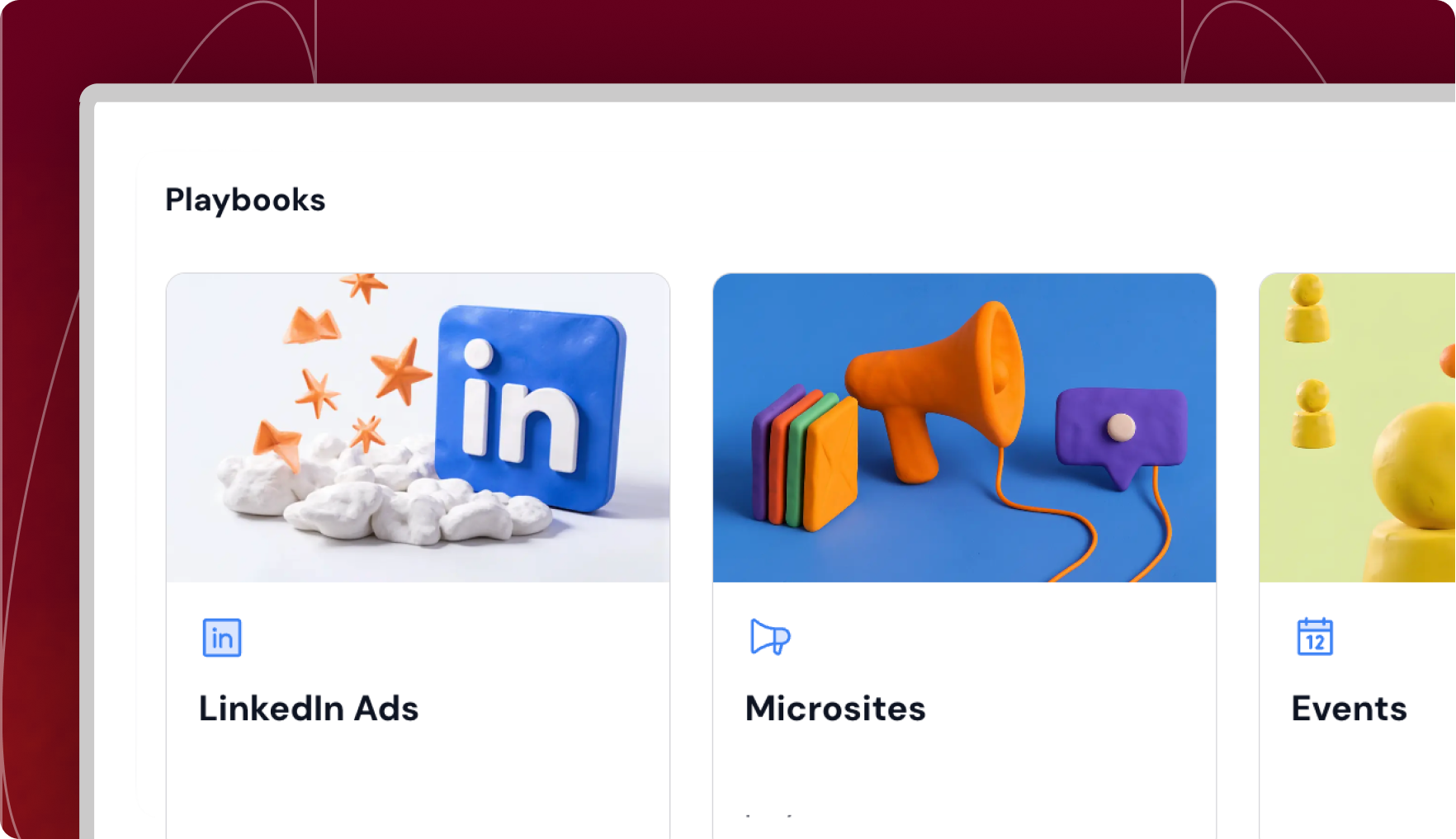Do you want to improve your marketing efforts? Marketing automation might be the solution for you. By automating tasks and simplifying processes, you can save time and reach your audience better.
Let's explore how marketing automation can help your business thrive in today's competitive marketplace. Learn about the benefits of streamlining your processes with marketing automation.
Streamline Your Processes with Marketing Automation
Marketing automation helps businesses by reducing manual work like sending emails, managing social media, and guiding leads through the customer journey.
This software lets marketers connect with their audience more personally, boosting interactions and trust with customers.
Businesses using automation can enhance brand awareness, generate leads, and increase revenue by delivering personalized content to the right audience at the right time.
Platforms like Mailchimp, GetResponse, and Hootsuite offer analytics for tracking campaign success and improving strategies.
Automation enables businesses to nurture leads, improve customer relationships, attract new customers, and optimize sales and marketing efforts effectively.
By automating workflows, companies can focus on strategic tasks, saving time and resources and achieving better outcomes.
Benefits of Marketing Automation
Increased Efficiency
Marketing automation software like Mailchimp, Get Response, or Hootsuite can make tasks easier for businesses. It helps by automating sending emails, posting on social media, and managing customer interactions. Team members save time and focus on important tasks. This software also helps in nurturing leads and increasing conversions. By using marketing automation, you gain insights into customer behavior, optimize campaigns, and build brand awareness.
Personalized communication, targeted content, and quick responses help in building trust with customers. Platforms like ContentStudio and Airbnb have successfully used marketing automation to improve interactions with their audience. Efficient and personalized communication is essential for success in sales and marketing.
Improved Lead Management
Implementing marketing automation can greatly improve lead management processes by using automation software like MailChimp, Get Response, or Hootsuite. This helps streamline tasks, maintain timely communication with customers, and optimize interactions with the target audience.
Automated workflows allow teams to deliver personalized content and emails to leads based on their behaviors and preferences in the customer journey. This enhances lead nurturing, boosts conversion rates, and increases sales revenue.
Integrating marketing automation into broader campaigns helps gather valuable data, optimize branding and content strategies, and improve brand awareness. By building trust through efficient communication and personalized interactions, businesses can strengthen customer relationships, acquire new customers, and maximize ROI.
Platforms like AirBnB, Buzzfeed, and ContentStudio are examples of how automation can optimize lead management, drive sales and marketing efforts, and enhance overall business performance.
Enhanced Sales Journey
Enhancing the sales journey through marketing automation can benefit a business in various ways.
Some of the benefits include streamlining tasks, optimizing communication with customers, and personalizing interactions.
This approach can lead to improved lead nurturing, increased conversion rates, and ultimately higher revenue.
Strategies for achieving this include creating automated workflows,
sending personalized emails through platforms like Mailchimp and Get Response,
and leveraging automation software like Hootsuite and ContentStudio for social media management.
By optimizing the customer journey, marketers can enhance brand awareness, build trust, and strengthen customer relationships.
Implementing automation in the sales and marketing process can also help in gathering valuable data and analytics to further refine campaigns and branding efforts.
By automating repetitive tasks and optimizing interactions, businesses can attract new customers,
reward existing ones,
and efficiently manage resources to drive sales growth.
Example of Marketing Automation
Marketing automation helps businesses personalize customer experiences. Automation software allows marketers to create tailored communication strategies. These strategies address the specific needs and preferences of their target audience. Platforms like Mailchimp and GetResponse enable businesses to send personalized emails. This personal touch helps build trust and brand awareness with customers.
In terms of lead nurturing and conversion efforts, marketing automation streamlines repetitive tasks. This allows team members to focus on more strategic initiatives. Companies like Airbnb and Buzzfeed have used marketing automation successfully. They optimize interactions and foster relationships with customers.
By gathering data and analyzing analytics, businesses can optimize their marketing strategies. This helps maximize revenue and rewards. Marketing automation can be a game-changer in sales and marketing efforts.
Through efficient communication and content distribution, businesses can benefit greatly from marketing automation.
Implementing Marketing Automation in Your Business
Building a Strong Marketing Automation Team
Businesses should focus on recruiting talent with expertise in marketing automation, data analytics, customer communication, and social media to form a strong marketing automation team.
Establishing clear goals, creating a shared communication platform, and promoting a collaborative environment are important strategies for effective teamwork.
Training programs on automation software, customer journey mapping, and lead nurturing can keep team members updated on the latest technologies.
Using platforms like Mailchimp, GetResponse, or Hootsuite for repetitive tasks can boost team efficiency.
Optimizing content creation, branding, and social media management helps improve brand awareness and customer relationships, leading to increased lead generation, conversion rates, and revenue growth.
Building trust through personalized interactions, welcome emails, and rewards attracts and retains customers.
Continuous optimization of strategies and analysis of analytics data are key to driving successful sales and marketing campaigns.
Understanding Your Audience
Understanding your audience is important in marketing automation. By analyzing demographics and preferences, marketers can tailor their strategies. It's vital to know how customers engage with content and make purchasing decisions. Do they prefer social media platforms like Hootsuite or personalized emails from Mailchimp?
These details help create effective communication and workflows. Identifying customer pain points, such as repetitive tasks or lack of information during their journey, aids in lead nurturing. Optimizing interactions and building trust through tailored content and efficient automation software like Get Response is key for businesses. Platforms like ContentStudio offer insights for branding and improving brand awareness.
Creating Tailored Strategies
Businesses can use marketing automation to analyze their target audience better. This helps them create effective strategies. They can use automation software like Mailchimp or GetResponse to gather important data on customer behaviors. This data includes preferences and interactions on social media or emails. By using this information, companies can tailor personalized communication and content that appeals to their audience. This, in turn, optimizes the customer journey.
When businesses develop personalized automation tactics, they need to focus on lead nurturing, conversion, and sales. By automating repetitive tasks through platforms like Hootsuite or ContentStudio, marketers can engage with customers more effectively at various sales and marketing stages. This leads to increased efficiency and revenue. By concentrating on branding and content creation, businesses can boost brand awareness and trust. This creates a smooth interaction for both new and existing customers.
To optimize marketing automation strategies for specific B2B scenarios and industries, businesses should tailor their communication to meet the needs of their target market. By emphasizing relationship-building, rewarding interactions, and streamlining workflows, companies can attract new customers and strengthen existing relationships. Platforms like Airbnb or Buzzfeed offer valuable insights and resources to improve customer interactions.
This results in better communication and trust with their audience.
Maximizing Marketing ROI through Automation
Nurturing Potential Customers with Follow-Up
Businesses can nurture potential customers effectively through follow-up strategies using marketing automation. This technology allows companies to create personalized communication with their target audience. It uses data-driven insights to tailor messages to individual preferences.
Platforms like Mailchimp, Get Response, and Hootsuite streamline repetitive tasks, making the follow-up process more efficient. By automating tasks such as welcome emails, rewards for customer interactions, and optimizing lead nurturing campaigns, businesses build trust and brand awareness.
Marketing automation software tracks customer interactions, providing valuable information for sales and marketing teams to optimize conversion rates. This streamlined approach enhances customer relationships, ultimately leading to increased revenue.
Whether it's B2C marketing for new customers or nurturing existing leads, automation software like ContentStudio enables businesses to effectively manage social media and content creation. This frees up team members' resources for other tasks.
In today's digital age, leveraging automation technology is crucial for businesses to efficiently nurture potential customers and optimize their sales and marketing efforts.
Integrating Automation into Wider Marketing Campaigns
Integrating automation into marketing campaigns means using tools to make tasks easier and communicate better with customers.
Popular platforms like MailChimp, GetResponse, and Hootsuite help personalize content and reach the target audience.
This improves lead nurturing, increases conversion rates, and boosts sales.
To track success, businesses can monitor analytics on branding, lead generation, and customer interactions.
However, it's important to balance automated and personal interactions, making sure the automation software matches the brand's voice.
Businesses should invest resources to update and optimize automation workflows regularly.
The Future of Marketing Automation for Businesses
Enhancing Customer Experience
Automation in marketing can change how businesses connect with customers. It helps make interactions more personal and effective. Software such as Mailchimp, Get Response, or Hootsuite can streamline repetitive tasks, giving marketers more time for strategic initiatives. These platforms use customer data to send targeted emails, social media campaigns, and personalized interactions.
Automation can be integrated at every stage of the customer journey, from the first welcome email to sales conversion, improving efficiency. This not only boosts revenue but also strengthens brand awareness and trust. By using platforms like ContentStudio to provide relevant information, businesses can nurture customer relationships and attract new leads. To succeed in automation, regular analysis of analytics is important to refine branding, messaging, and communication.
Companies like Airbnb and Buzzfeed use automation to optimize interactions, improve customer experience, and achieve positive results for both customers and the business.
Driving Future Investment in Automation
Businesses can benefit from automation software. This software helps in streamlining tasks, improving efficiency, and increasing revenue. Marketing automation platforms like Mailchimp, Get Response, and Hootsuite are useful for creating personalized customer journeys, nurturing leads, and boosting conversions.
Automated campaigns and workflows can optimize customer interactions, build trust through personalized communication, and enhance brand awareness. By using analytics and data, businesses can track automation performance, make data-driven decisions, and continuously improve strategies.
Focusing on customer relationships, attracting new customers, and delivering valuable content can drive future automation investment aligned with long-term goals. Prioritizing lead nurturing, integrating sales and marketing, and managing social media can help businesses stay competitive and build strong customer relationships for sustained growth.
Marketing Automation in B2B Scenarios
Marketing automation can help with lead management in B2B scenarios. It does this by:
- Streamlining repetitive tasks.
- Nurturing leads efficiently.
- Tailoring communication to customers' specific needs.
Using automation software such as GetResponse or Mailchimp, marketers can:
- Create personalized workflows.
- Guide potential customers through the customer journey.
- Boost conversion rates and sales revenue.
Strategies that can be useful include:
- Optimizing content for the target audience.
- Using data analytics to track lead behavior.
- Integrating social media platforms like Hootsuite.
These strategies help in:
- Building brand awareness.
- Establishing trust with customers.
Integrating marketing automation into broader campaigns can:
- Optimize resources better.
- Improve communication within the team.
- Ensure a higher return on investment (ROI) in B2B settings.
Successful brands like Airbnb and Buzzfeed have used automation to:
- Send customized welcome emails and rewards.
- Strengthen customer relationships.
- Attract new clients.
Conclusion
Marketing automation helps businesses in many ways. It automates tasks like email marketing, social media posting, and lead nurturing. This saves time and makes marketing efforts more personalized. Businesses can be more efficient and engage with customers better. Overall productivity improves and marketing campaigns yield better results when using marketing automation.
Generated £1.3M pipeline by focusing on UTM parameters personalisation.


Generated £1.3M pipeline by focusing on UTM parameters personalisation.







